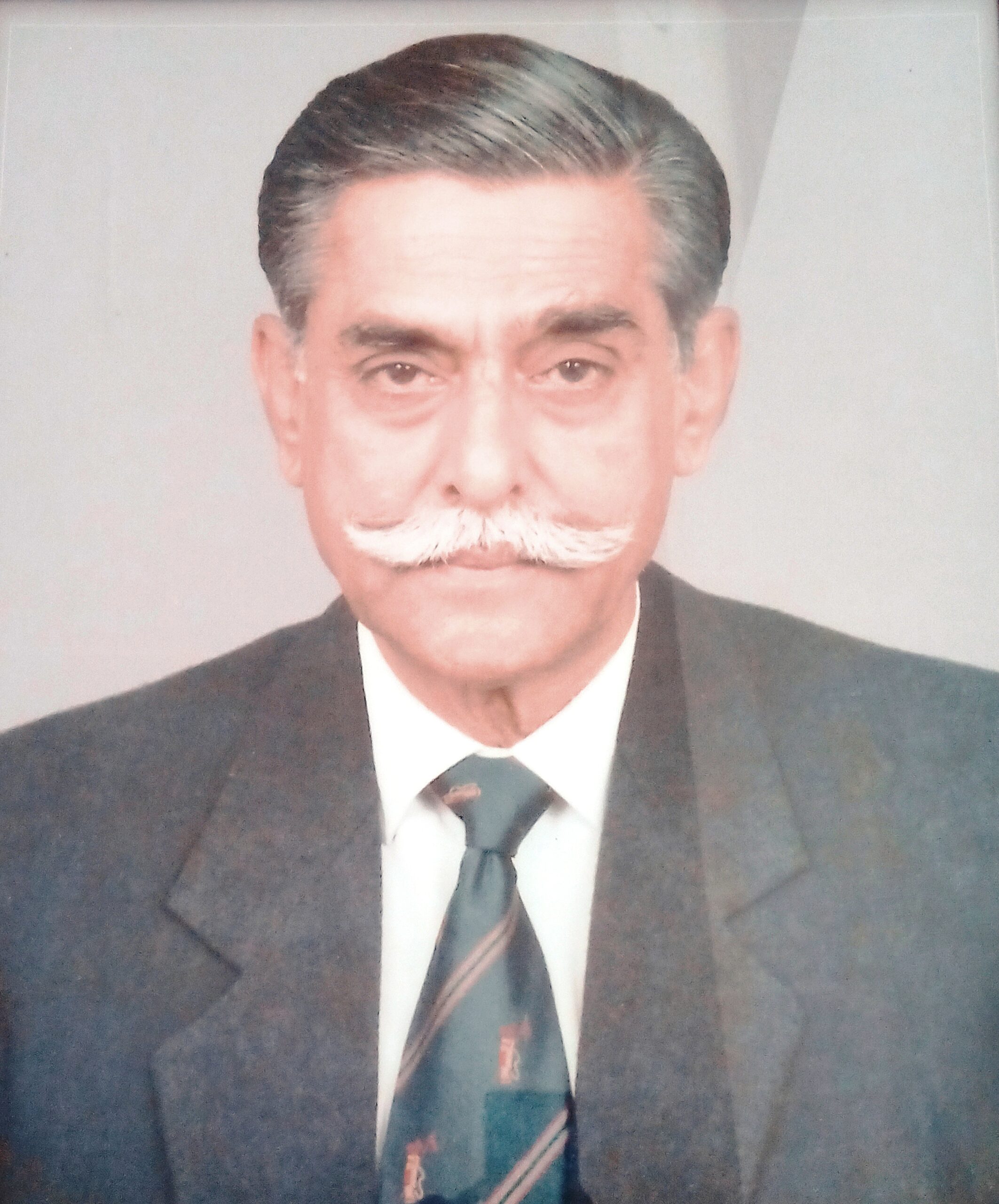Late Shri K.S. Rathore was a distinguished scholar and a guiding force in the evolution of Natnagar Shodh Samsthan.

Maharaja Krishna Singh ji Rathore was born on November 18, 1934. He was the elder son of Maharajkumar Dr Raghubir Singh and his mother’s name was Mohankumari.
Krishna Singhji Rathore’s primary to high school education was completed at Sitamau. He passed the High School Exam from Shriram School, Sitamau in 1949 under the Education Board, Ajmer, and the Intermediate Exam from Daly College, Indore in 1951 under the MP Education Board, Bhopal. He earned his BA from St Johns College, Agra in 1953 under the Agra University and also his MA (History) from the same college in 1955. He did his LL B from Delhi University, Delhi in 1958 and his Certificate of Proficiency in Law from the same University in 1959. He was selected to the Indian Police Service (IPS) in 1959 and joined duties on October 30, 1959.
He remained in Abu from October 1959 to October 1960 for training as Assistant Superintendent of Police and from November 1960 to November 1961 he trained in Rewa. After getting this training, he was posed as Assistant Commandant with the First Battalion of SAF at Indore. He remained in this post till June 1961. After this he was posted as Sub-division Officer Police (SDOP) of Alirajpur from June 1962 to June 1963 and as Deputy Commandant of CSWT, Indore from June 1963 to June 1964. He remained in charge as Commandant of the First Battalion of SAF Indore from June 1964 to January 1965.
From January to June 1965, he undertook an advanced course at the National Police Academy, Abu, and then was posted as Superintendent of Police in Shivpuri in July 1965. He remained in this post till April 1967. From July 1967 to October 1968, he was posted as deputy director with IB, New Delhi. He was transferred as Deputy Director (Adjutant) at the National Police Academy, Abu, where he remained from October 1968 to January 1973. From June 1973 to January 1974, he was the commandant of SAF (15th Battalion). He was then posted as Commandant of Basic Training Centre, Border Security Force Academy, Tekanpur, where he remained till March 1977.
From March 1977 to December 1977, he was posted as Deputy Inspector General with BSF, Agartala (Tripura). From there he was transferred to DIG Commandant Signal Training School, BSF Headquarters, New Delhi, and remained posted from January to April 1978. From May 1978 to December 1978, he was posted as Deputy Commandant (DIG), at BSF Academy, Tekanpur. From October 1979 to April 1983, he was posted as General Manager of the Tear Smoke Unit at Tekanpur. During this duration, he also remained in charge as Director (Officiating) of BSF, Academy, Tekanpur from January to April 1982. From May 1983 to January 1986, he was posted as Deputy Inspector General with the Armed Police Training College (APTC), Indore. After this, from January 1986 to October 1988, he was posted as Inspector General with BSF, Jodhpur. While in this post, he was in charge of the area of Gujarat and Rajasthan States, bordering Pakistan.
From here, he was transferred to APTC, Indore where he stayed from 1988 to April 1991. From April 1991 to 1992, he was Additional Director Lokayukta (SPE) and from January to May 1992, he was Additional Director General (Training) at Police Headquarters, Bhopal. On May 10, 1992, he was appointed as the Director General of Police of Madhya Pradesh and retired from the same post on November 30, 1992.
Going by the ideologies that were in his blood, Maharaja Krishna Singh Rathore dedicated himself to education, and even while in the Indian Police Service, he took up several courses and training unrelated to his work.
He got IPS Training at CPTC, Abu in 1959-60 and a Smoke Gas course from MPPC, Sagar in 1961. In 1962, he completed a Platoon Science Course from Infantry School, Mhow, and a training course in Training Science from Sainik Shikshan Kendra, Pachmarhi. In 1965m he did an advanced course from NPA, Abu, and in 1967, a basic intelligence course from IB Training Centre, New Delhi. In 1978, he did a Research Methodology course from ICFS, New Delhi, in 1980 a management (public undertaking) course from IIPA, New Delhi, 1987, a `high inter-personnel relation’ training from NPA, Hyderabad. He undertook training at the Indian Institute of Public Administration from ASCI, Hyderabad. He did a training on the use of technology from DCPC, New Delhi.
Shri KS Rathore’s activities did not remain confined to his posts, but going by the tradition of his dynasty, he made several achievements. He was a multi-talented personality and had a long list of achievements. They are as follows:
Shri K.S. Rathore, not only made achievements in the country but also upped the honor of the country in foreign lands by undertaking several foreign trips and posting achievements. His foreign trips, made for various reasons – were as follows:
As president of the Shri Natnagar Shodh Sansthan, Sitamau, his achievements are as follows:

DR. Raghubir Sinh Marg, Sitamau,
Dist Mandsaur (M.P.)
shreenatnagar@yahoo.co.in, info@natnagar.org
07426-222910

(The Raghubir Library and Research Institute)
DR. Raghubir Sinh Marg, Sitamau,
Dist Mandsaur (M.P.)